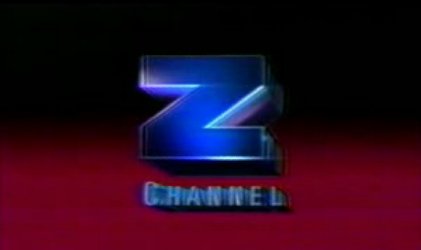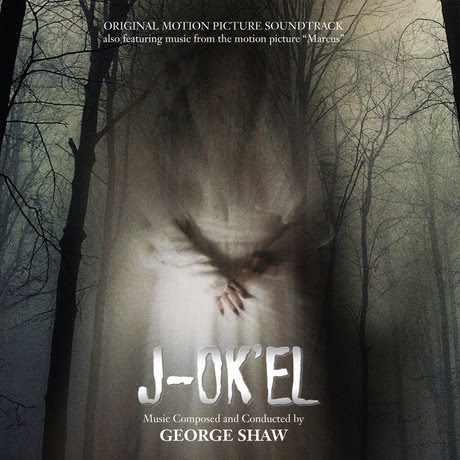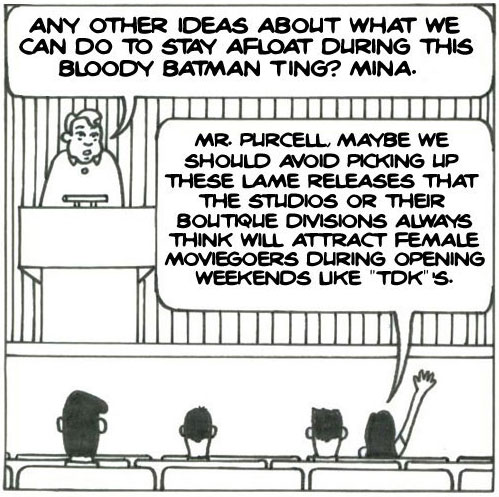My year-long postings of past or long-buried writing conclude with a partial transcript of a chat with
Dallas Observer pop culture editor and HDNet
Ultimate Trailer Show host Robert Wilonsky from a 1998 Christmas episode of the college radio incarnation of
A Fistful of Soundtracks.
That year, Wilonsky wrote
an Observer article that revealed some little-known background info about the Vince Guaraldi Trio's pitch-perfect music from the classic animated special
A Charlie Brown Christmas (for instance, he said "the album isn't the soundtrack to the special. Actually, it's the other way around: The record was cut before the cartoon was made"). So I called Wilonsky up and had him discuss on
AFOS why he loves the Guaraldi tunes from the 1965 special, which airs on
ABC on Tuesday, December 8 (President Obama's address about Afghanistan pre-empted ABC's originally scheduled December 1 airing).
Five years after our interview, Wilonsky recorded
an NPR segment about Guaraldi's music and the special itself, which he described in his segment as "the perfect Christmas gift, a show that is part Bible lesson, part jazz solo, part psychotherapy."
 |
Vince Guaraldi
|
Robert Wilonsky: For 30 years, they've listed the wrong personnel on the records for
A Boy Named Charlie Brown,
A Charlie Brown Christmas and the Vince Guaraldi
Greatest Hits records... Fred Marshall was very unhappy to find 30 years after he made this record that he never got credit for actually playing on the thing... His daughter, whom I've put in my piece, went to a record store to buy the record
A Charlie Brown Christmas that her dad played on. She had always had the vinyl version, which never had the listing of personnel. She bought the CD, which said "Colin Bailey: drums, Monty Budwig: bass, Vince Guaraldi: piano," couldn't believe her dad wasn't on the record, took the record back to the record store, said "I'm not gonna buy these records till you fix the credits." He told her dad he wasn't on the record. Dad called Fantasy Records, said "Why the hell am I not on the record?" The label guy got kind of upset because he wondered where he'd been for 30 years if he was upset about the incorrect personnel listing and went about to figure out if they were wrong all these years.
Jimmy J. Aquino: You also say in your article that the soundtrack album is not really a soundtrack.
RW: Right. Both
A Boy Named Charlie Brown and
A Charlie Brown Christmas were actually recorded before the
Charlie Brown Christmas special was even filmed. What happened was Vince Guaraldi had been approached by Lee Mendelson... He had asked Vince about doing this music for a documentary that was going to be sold to a network--maybe CBS--about Charles Schulz and
Peanuts. So they went in the studio and did this music. Something happened, and the documentary never aired. I'm not quite sure what happened. I don't think anybody really knows at this point. Time has erased a lot of memories. But they had this great record, so Vince released it as
Jazz Impressions of a Boy Named Charlie Brown, which was what it was called originally.
Around the same time in 1962-63, they also went in to do the Christmas record because Vince had kids that were around the age of Charlie Brown and the characters in
Peanuts, and he thought it'd be nice to do a jazz record because he liked the music so much and he liked what he had done and he liked the sound the trio had. He also thought there weren't any Christmas records out there for kids and adults. They were all a little cheesy, a little melodramatic for him, and him being a cool jazz pianist and having played with Cal Tjader and all these guys, that was his metier to do a cool jazz Christmas record. So he did it, and Mendelson liked it so much that he figured they'd maybe go out and get a sponsor like Coca-Cola, which I believe is who ended up sponsoring the show...
When they actually decided to do the Christmas special, Vince Guaraldi had to go to Los Angeles to record cues or shorter versions of the songs he was intending to use on the Christmas special, so he rounded up Monty Budwig and Colin Bailey, who were in his band in the early 1960s and had since moved to Los Angeles, and had them re-record shorter versions of what Jerry Granelli the drummer and Fred Marshall the bass player had done earlier around the time of
A Charlie Brown Christmas. But for some reason, Fantasy just thought it was Colin and Monty playing on both those records and not Jerry and Fred...
 |
Robert Wilonsky
|
JJA: How come
A Charlie Brown Christmas is so special to you?
RW: I remember as a kid all those Claymation episodes--
Rudolph and
The Year Santa Didn't Come or whatever it was called. I remember thinking, "God, these are kind of silly, but Charlie Brown was a kid, he's your age..." I didn't realize that later in life, I would become a large-headed bald man myself, much like Charlie Brown, so perhaps there were some subliminal messages in there...
One thing I always loved about it as well was the fact that I didn't realize this until later, but I got to be a jazz fan when I was real young, like 12 or 13, which in Texas, is not an easy thing to do. You're either a country or Southern rock fan. You're not a jazz fan. There was a public radio station here that played jazz at night. I used to love it. One day, Vince's music came on, and I'll never forget it. It was
A Charlie Brown Christmas... I was a teenager, and it made me just fall in love with it all over again. I fell in love with it this time around for the music because it was so pretty, it was so melancholy and kind of restive. I listen to it 24 or 25 times a day during the holidays sometimes because it just permeates the air like a good smell... It's just this great thing to have around, whether it's for nostalgic purposes sometimes or whether it's for musical purposes because it's just a beautiful, perfect record. It's not overwrought like all these other Christmas records. It's not sentimental. It's just perfect.







































